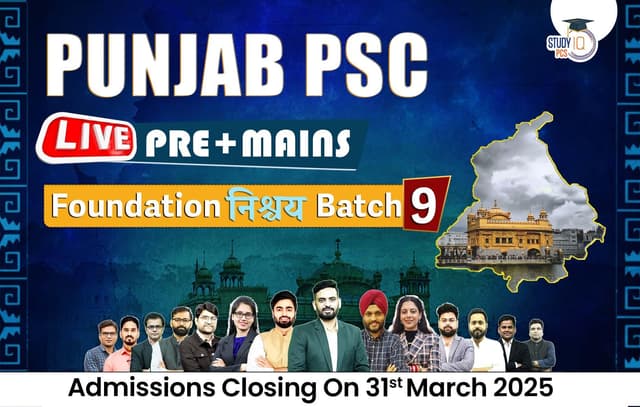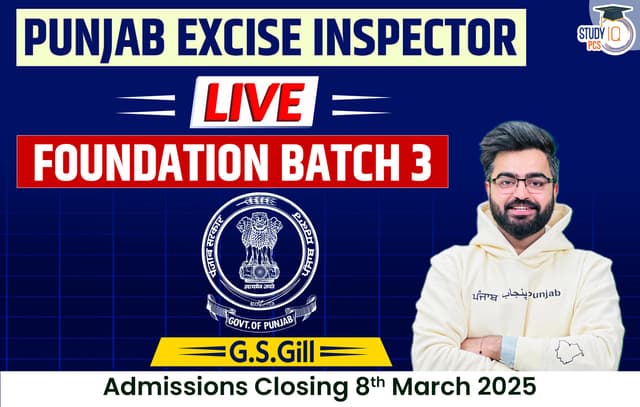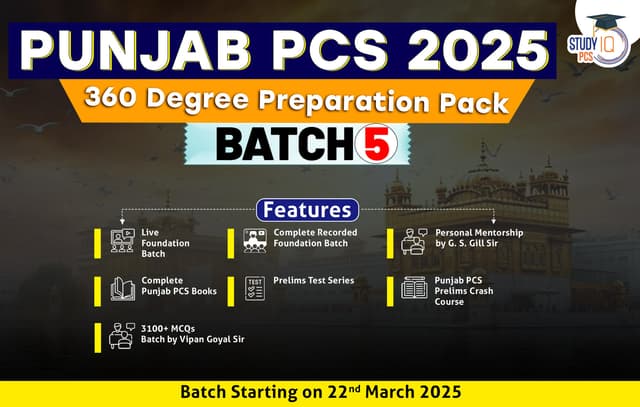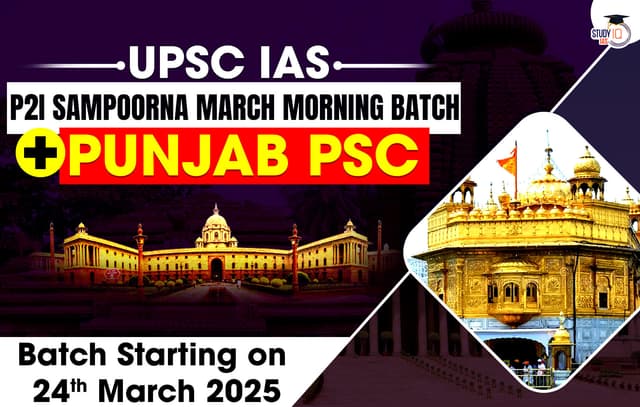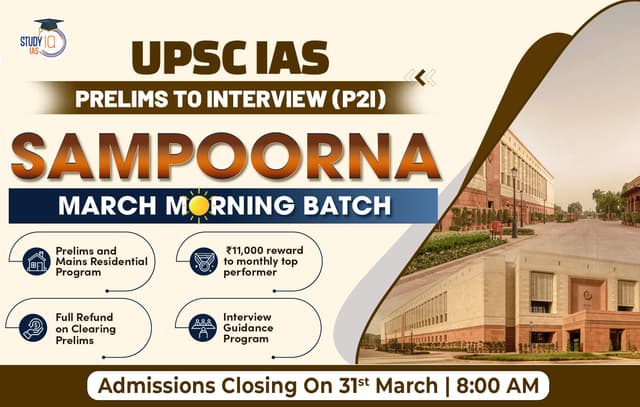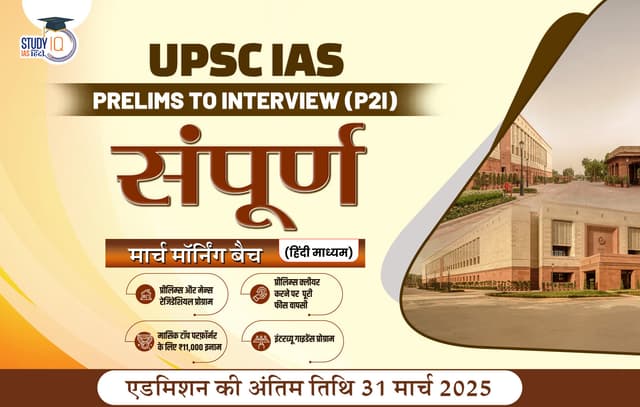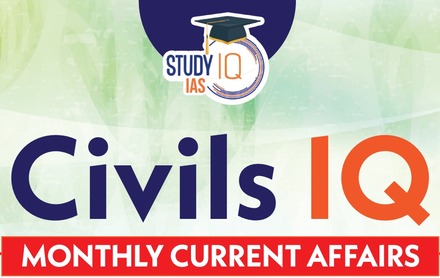Table of Contents
Welfare and Social Security
Social Security Schemes are created to support the citizens from womb to old age. The Department of Social Security and Women & Child Development plays a vital role in providing this support. The department provides financial assistance to the elderly, widows and destitute women, dependent children and disabled persons for their subsistence under the Social Security Schemes.
Various Government initiatives to promote Welfare & Social security
- Old Age Pension Schemes: Approximately 10% of Punjab’s Punjab comes under old age. Thus several schemes have been devised to support those people.
- Indira Gandhi National Old Age Pension (IGNOAPS): It is given to persons of 60 years age who belong to a household below the poverty line.
- Indira Gandhi National Widow Pension Scheme: The age of the widow shall be between 40-59 years and belong to a household below the poverty line.
- Financial Assistance to Widow and Destitute Women
- Financial Assistance to Dependent Children
- Integrated Child Development Services Scheme (ICDS): This scheme was launched in 1975 for overall development of children. Under this scheme, 27314 Anganwadi Centres are being run in 155 ICDS blocks.
- Financial Assistance to Disabled Persons
- Indira Gandhi National Disabled Pension Scheme: This scheme was started by the Government of India in 2009. The age of the disabled shall be between 20-59 years. The applicant must belong to a household below the poverty line. An amount of Rs. 4.00 crore was approved for the year 2023-24.
- Traveling Facility to Blinds and Handicapped Persons: Blind persons are provided free traveling facility and handicapped persons are provided concessional travel facility in the Punjab Roadways and PRTC buses.
Employment Initiatives
Employment and Unemployment Trends
- In comparison with 2021-22, the Labour Force Participation Rate (LFPR) in Punjab has witnessed a 1.7% decrease. Efforts of the State government to provide skill training and employment opportunities through various initiatives like setting up health sector skill development centers and institutes like Maharaja Ranjit Singh Armed Forces Services Preparatory Institute have boosted the employment scenario in the State. Keeping in view the need to provide employment to the youth, the concerned department is following a multidimensional approach in the form of counseling, Skill Training, Coaching for Government / Private jobs, etc. Unemployment rate (UR) at Punjab and national level has shown a decreasing trend. Various government initiatives to promote employment and skill development are:
Setting up District Bureau of Employment and Enterprises (DBEE)
- The State Government has established the District Bureau of Employment and Enterprises
(DBEE) in November 2018 to facilitate unemployed youth. DBEE is a single window platform for
employment services, for the employment seeker and employer, in every district headquarter of
the state. The main services provided by DBEE are:
- To arrange a regular interface between the Job seekers and Employers in the form of Rozgar Melas for placements.
- Providing Guidance & Career Counseling
During 2023-2024 (April 2023 to November 2023), DBEE organized 1332 Placement /self employment camps in which 79715 candidates participated. 58788 candidates were facilitated for private placements. 2056 candidates were given coaching for private/Government jobs.
Mai Bhago Armed Forces Preparatory Institute
To impart training to girls, Mai Bhago Armed Forces Preparatory Institute for girls has been set up by the State Government at SAS Nagar. This is the only and unique institute of its kind in the entire country which trains young girls at 10+2 level from Punjab to join the armed forces as commissioned officers.
Maharaja Ranjit Singh Armed Forces Services Preparatory Institute
In the modern city of SAS Nagar, the ‘Maharaja Ranjit Singh Armed Forces Services Preparatory Institute’ has been established to provide focused and goal-oriented training to cadets and to equip them with the required intellectual, physical skills and character-building qualities for joining the National Defence Academy and becoming commissioned officers in the Armed Forces.
Centre for Training and Employment of Punjab Youth (C-PYTE)
C-PYTE was established in 1990. It is a unique organization that is engaged in inculcating self-discipline, spirit of national integration, secularism, dignity of labor and work culture, besides imparting technical skills for generating self-employment opportunities, rather than seeking employment alone. Main lot of beneficiaries of the scheme are the rural unemployed youth who are given pre-recruitment training for joining the Armed Forces, Central Para Military Forces and Police. The Organization has established 14 C-PYTE training camps.
The scheme endeavors to eradicate unemployment amongst the youth of Punjab particularly amongst the youth of border areas and youth belonging to SC/ST and backward classes.
Ghar-Ghar Rozgar and Karobar Mission
To achieve its goal of Ghar Ghar Rozgar, the Punjab Government has set up a Punjab Ghar Ghar Rozgar and Karobar Mission (PGRKAM) with headquarters in Mohali to help unemployed youth. At present, the projects like Punjab Job Helpline, Full-Fledged Digital Platform, Centre of excellence in Health sector in association with AlIMS Bathinda, Skill training of sewage workers, Skill Training of Jail inmates under SANKALP, various other projects are undertaken by PGRKAM for the purpose to achieve the requisite goal.
Women Empowerment
Low sex ratio and low level of participation of women in the labor force indicate that there is need to pay special attention to improve the situation of women in the State. Historically, women have been subjected to discrimination across all domains of life, from education to healthcare to household decision making to employment. SDG 5 (Sustainable Development Growth) which aims at achieving gender equality and empowering all women and girls to reinstate the need for women to be given their due place in the world.
Punjab has previously been known as state with high incidence of female foeticide and infanticide, and other forms of discrimination against women. To uplift the social and educational status of women and to improve the skewed sex ratio of girls, awareness regarding social stigma in respect of the birth of girl child is being created and also financial benefits are being provided for bringing up the girl child. The main aim of all these schemes is to create awareness among people and empower women. Some important pointers are:
- GER (Gross Enrollment Ratio) and NER (Net Enrollment Ratio) for females in Punjab has been higher than males at all levels of education.
- Punjab has not only been successful in ensuring that girls come to schools but also to continue to remain there.
- Although women perform better than men in educational and learning outcomes, this does not translate to employment opportunities for them.
- The discrimination against women in the employment sector is also evident in the wage gap between the two genders, especially in the regular salaried workers in rural areas.
Various Government initiatives to Empower Women
- Nirbhaya Fund (Dedicated fund for safety and security of women): This fund has been set up by GOI for ensuring safety and security of women in the country. Under this scheme proposals are being received from various departments and districts to run the project for the safety and security of women in the State.
- Ujjawala scheme: A multi-dimensional approach is needed which will undertake preventive measures to arrest trafficking especially in vulnerable areas and sections of population; and to enable rescue, rehabilitation and reintegration of the trafficked victims.
- Mata Tripta Mahila Yojana: The scheme will focus on providing benefits to all eligible women under the existing schemes run by the government. This is to reach out to all the needy women and girls in the state so that they can be provided services/benefits/rights such as health care, education, employment, security and dignity. Under this scheme, the Government of Punjab will launch new initiatives and programmes.
- Mai Bhago Vidya Scheme: The State Government has started this scheme during the year
2011-12 for all the girl students studying in class 9th to 12th in Government Schools for the purpose to continue further study and to reduce the school dropping rate. Under this, free bicycles will be given to all Girl Students Studying in class 9th to 12th.
- Swadhar Greh Scheme: During the year 2019 the Government of India through its Ministry of Women & Child Development started a Short Stay Scheme with the objective to provide temporary accommodation, maintenance and rehabilitative services to women and girls rendered homeless. Presently there are only two Swadhar Greh Homes in Punjab at Jalandhar and Amritsar.
- National Crèche Scheme for children of working mothers: The Creche Scheme was implemented by NGO Child Welfare Council and Social Welfare Advisory Board which were running 102 and 112 creches respectively. The Department has taken over these crèches from 1.1.2018 as per the instructions of Government of India and 216 creches are functional now.
Education
Education is one of the most important goals of SDGs. Aim of SDG 4 – ‘Quality Education’ is lo ensure inclusive and equitable quality education and promote life-long learning opportunities for all. Punjab Government has been dedicated to promote education in the State by bringing a qualitative improvement in school education and promote the Right to Education (2011) in letter and spirit. Punjab has relatively a strong educational infrastructure and outcome indicators.
Punjab with a score of 0.69, ranks Ist out of 29 big states, on the Human Resource Development aspect of the Good Govemance Index 2020-21, launched by the Ministry of Personnel, Public Grievances & Pensions.
Literacy rate is the primary indicator of the education level of an economy. Punjab has made significant progress in improving its literacy rates over the years. As per Census 2011, Punjab
has a literacy rate of 75.84% growing from 34.12% in 1971, indicating an improvement of more than 10 percent every decade (on average).
A Few Pointers
- Punjab Government aims to achieve 100% Gross Enrollment Ratio (GER) and 100% Net Enrollment Ratio (NER) in the education sector. As per the estimates for 2021-22 for GER across all stages of education, Punjab is doing better than the national average. However, it still has a long way to go in NER.
- Punjab has made great improvement in reducing the drop-out rates across different levels of education, especially at the primary level. Punjab has a significantly lower drop-out rate as compared to national level under Primary Level.
- According to transition rates in Punjab, the majority of the students progress to the next level of education. As of 2022-23, the transition rate stood at 95.6% for primary to upper primary level, and 87% for upper primary to secondary level.
Various Government initiatives in Education sector
School Education
- Schools of Eminence: The State Government has established the Schools of Eminence (SoE) programme with the aim of revolutionizing education in 118 government schools throughout the state in the first phase. These schools serve as centers of excellence, boasting state-of-the-art facilities. The Schools of Eminence have five pillars of support and strength: Infrastructure, Academics, Human Resource Management, Sports and co-curricular activities, and Community engagement.
- Foreign and Domestic Trainings: The Government of Punjab has sent 6 batches of 198 principals/education officers for a five day Leadership Development Programme to Singapore. In addition to this, 100 Headmasters were sent for training to IIM Ahmedabad.
- Installation of Rooftop Solar Panel System in Government Schools: In Punjab, where summer spreads for more than half of the year, the hefty electricity bill of schools is a big challenge for schools because of the availability of limited funds in schools.
Installation of rooftop solar panels is viable in Punjab as there is ample sunlight in all regions throughout the year.
- Smart Schools Project: The Department of School Education Punjab has been converting government schools into Smart Schools to strengthen school education and improve learning levels of students in Government schools. These schools have been developed as model schools in which state of the art facilities are provided to impact on the quality education. Main features of the policy are:
- Sharing Pattern (60:40): The requirements of funds for developing smart schools are met by the concerned school and the State in the ratio of 60:40 respectively.
- Parameters for Smart Schools: Smart Classrooms, Coloured Coordinated Buildings, Building As Learning Aid (BALA) Work, CCTV cameras, Green board/white board, Furniture for all students, Lecture stands for students and teachers, availability of potable drinking water facility, etc. are the parameters for Smart Schools.
The department is currently working on the concept of converting Smart schools into
Super Smart schools.
- Launch of Pre-Primary Schooling: Punjab launched pre-primary classes for students of ages group 3-6 in all Government Primary Schools in 2017. There has been an upward trend in enrollment in pre-primary sections since then. The state has also focused on ensuring quality with quantity. Several initiatives have been taken to enhance the teaching and learning in pre-primary sections:
- Child-friendly material in the form of storybooks, story cards, flash cards etc.
- E-Content has been prepared according to the prescribed syllabus to enhance the learning.
- Training for pre-primary teachers and school head teachers have been organized.
- Supplementary materials like kits, puppets, toys are provided to schools to increase fine motor skills.
- Parho Punjab, Parhao Punjab (PPPP): This scheme was launched in government schools from classes Ist to 8th to ensure age and class-appropriate levels of learning of students in a time-bound manner in 2017. The program has been aligned with NIPUN Bharat (national FLN Mission) which was launched in 2021 to create an enabling environment to ensure the universal acquisition of foundational literacy and numeracy.
Following mentioned key tenets of the Parho Punjab Parhao Punjab program align well with the aspect of the NIPUN Bharat mission:
- Focus on the enhancement of creativity and strengthening students’ capabilities.
- Stress on conceptual understanding.
- Use of assessment and grouping techniques to provide focused and differentiated teaching.
- Teacher training for activity-based teaching-learning techniques.
- Mission 100%: Give your Best: The Department of School Education, Punjab has launched this with the prime aim to improve the performance of students of classes 8th, 10th, and 12th in the forthcoming examinations of Punjab School Education Board to be held in February/March 2023 in a mission mode to achieve 100% pass percentage with the collective efforts of teachers, school heads, students and their parents apart from educational officers working at different levels in a well-planned way. This program was launched on 2nd December 2022.
- Welcome Life: Apart from the focus on the academic learning of children in schools, Punjab has initiated various programs like making school children aware of ill effects of drugs, and how to be protective from the incidences of sexual abuse. The school curriculum contains contents relating to sensitizing students about human rights, gender equality, promotion of a culture of peace and non-violence, global citizenship, and appreciation of cultural diversities within India and at the global level. New subject
“Welcome Life’ is introduced in all classes from Ist to 12th.
- Samagra Shiksha Abhiyan: The scheme is being implemented from Pre-Primary to senior secondary level. The objective of the scheme is 100% school access, 100% enrollment of children of age group 4-18, 100% retention, zero dropout, quality education and enhanced learning outcomes.
The fund sharing patter of the scheme is 60:40 for Central and State respectively. The various activities to be fulfilled under this scheme are:
- Smart classrooms are being established in Government schools.
- Special training is being provided to Out-of-School children (OOSC) identified in the age group 7-14 years for mainstreaming them into regular schools.
- Free Textbooks for non-SC students of classes Ist to 8th in government and government-aided schools.
- Children with special needs are being provided home-based education.
- Computer Education is being provided from classes 6th to 12th in Government schools.
- Chanan Rishma Project (Gender Sensitisation Program): A tripartite MOU was signed between J-Pal, Breakthrough and Department of School Education on 26 February,
- Under this project, an effort has been made to improve the behavior of men towards women in society and to change their mentality. Activities related to this project have been included in English, Social Science and Welcome Life subjects for students from class 6th to 8th. These activities are being taught by the teachers to the students in their respective classes.
- Young Entrepreneur Programme Scheme: A pilot project namely Business Blaster
Punjab 2022-23 has been initiated under the “Young Entrepreneur Programme Scheme ” for Secondary level students to provide them with real-world entrepreneurship experience, supported by a seed grant, to the students. It would prepare the young students as job creators and problem solvers in the country.
- Community Engagement: Following activities were conducted for parents of
Pre-Primary children:
- Mother’s workshop: To increase the involvement of mothers, as suggested by the NEP
2020, the department of school education held a mother’s workshop in March 2022.
- Graduation Ceremony: Annual Graduation Ceremony was organized across all 23 districts of Punjab on March 29, 2022, to mark the successful completion of
Pre-Primary classes.
- Mega PTM: The objective of Mega PTM was to enable strong partnerships between parents and teachers by welcoming parents into school. It was conducted on 24th December 2022.
Higher Education
Rashtriya Uchchatar Shiksha Abhiyan (RUSA)
Under the Phase-2 of RUSA, a 60:40 (Centre:State), Guru Nanak Dev University, Amritsar is setting up the following centers:
- Centre for Sustainable Habitat
- Centre for Basic and Translational Research in Health Sciences
- Centre for Agriculture Research & innovation
- Development of IT Enabled Pedagogical Model for teaching and Learning
- Development of Entrepreneurial Courses.
- Centre for Entrepreneurship & Innovation
- Funds have been released to Punjabi University, Patiala for setting up an Entrepreneurship Innovation and Career Hub under the Research, Innovation and Quality Improvement component of RUSA-2. The University has also been given a grant for Infrastructure Enhancement in the University Campus.
- Entrepreneurial Hubs are being established in GNDU, Amritsar and Punjabi University, Patiala, which will act as a fusion zone for innovative ideas, transfer of technology to the field and hand holding by various stock holders for entrepreneurial ventures.
- Guru Nanak Dev University, Amritsar has been given funds for undertaking Faculty Development Programs and development of content for e-tutorials.
- A new Model Degree College is being constructed in the aspirational district of Moga at village Fatehgarh Karotona, where the classes have been started.
| Some points to be Memorized |
|

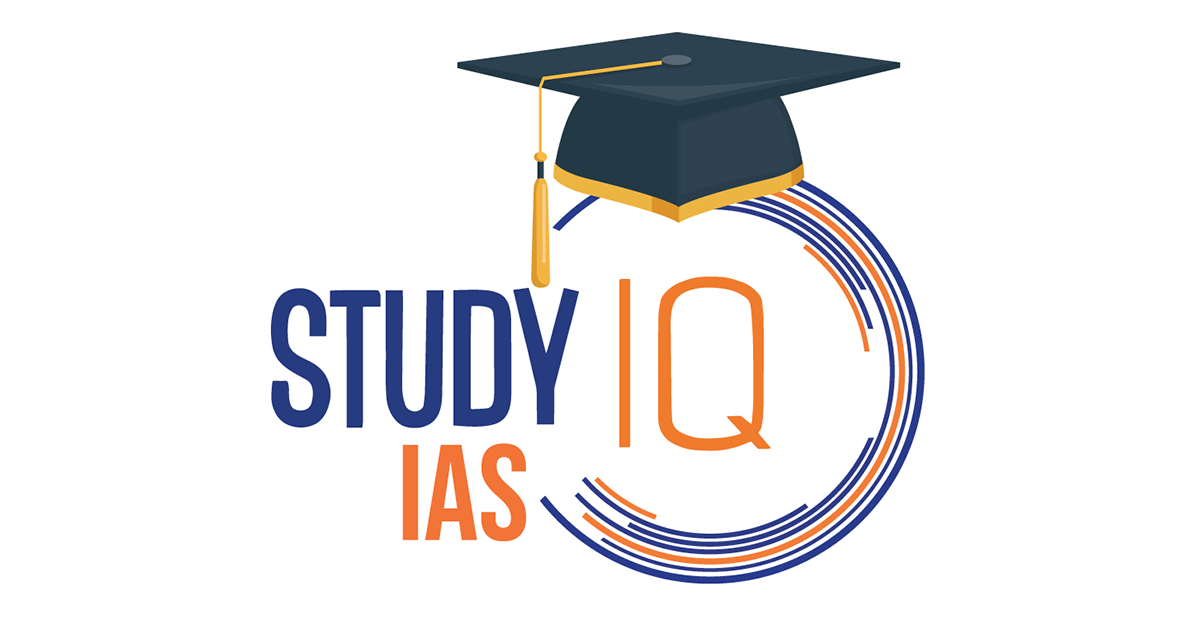
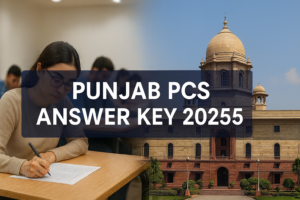 Punjab PCS Answer Key 2025 – Check Sol...
Punjab PCS Answer Key 2025 – Check Sol...
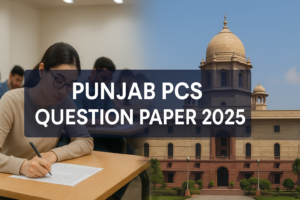 Punjab PCS Question Paper 2025 Out: Down...
Punjab PCS Question Paper 2025 Out: Down...
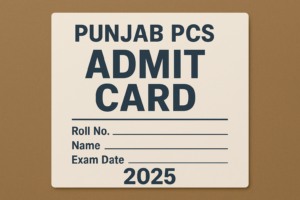 Punjab PCS Admit Card 2025 Released: Dow...
Punjab PCS Admit Card 2025 Released: Dow...
